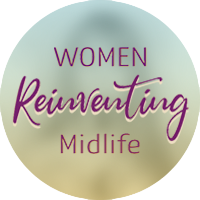Midlife brings with it many changes. I believe that’s a good thing, but it doesn’t always feel that way at the time. One of those changes is obviously menopause and if we want to make that transition easier then it is essential to avoid mental fatigue.
Mental fatigue can occur during times of change or of increased pressure and stress. This was made more apparent during the pandemic. But there are so many other midlife experiences that can cause this exhaustion too.
Kids flying the nest can be a huge change. This can cause a large amount of stress because we feel like we’ve lost our purpose.
Ageing parents needing more care and attention is another common occurrence in this phase. Managing this with our own life and work can put a lot of extra pressure on us.
All losses experienced in midlife also create a lot of pressure
Divorce can also be quite prevalent in this phase of life. The ending of a relationship after many years of marriage can cause great stress. This can lead to pressure of financial settlements, finding a place to live, navigating the dating world again and a whole host of different things.
Then of course there is the death of loved ones, which is part of life. But in midlife and later it is much more likely to happen and tends to be more frequent.
Following the sad loss there is the funeral and end of life processes to organize which creates a ton of pressure. Added to that the stress of the grieving process can very easily lead us to feel fatigued.
To top it all off we often lose motivation for the career we once loved. The work that used to excite and drive us, no longer holds the same meaning anymore. Staying in a job we don’t love, especially if it’s a demanding role, can cause a huge amount of pressure too.
Mental fatigue isn’t just related to midlife changes but can easily be triggered by them. And falling prey to it can make the changes more challenging than they need to be. So it’s important to understand in what ways it affects us, how to recognize it and learn how to avoid it.
Here is how to recognise mental exhaustion
Prolonged mental fatigue can lead to physical exhaustion where you regularly feel like you have an empty tank. Over time this can lead to burnout or adrenal and chronic fatigue. This is because our body is regularly in survival response, which increases hormones like cortisol and adrenaline.
With this rise in stress hormones we can experience an increase in symptoms like hot flashes, weight gain and sleepless nights. Making our menopausal transition feel much worse than it actually is.
Also the escalation in stress hormones depletes our immune system. This leaves us more susceptible to viruses. It can also cause more serious illnesses like autoimmune diseases, diabetes, cancer and heart disease.
Then there’s also the emotional issues caused by mental fatigue. Problems like anxiety and depression can be debilitating. Feelings of overwhelm, confusion and an inability to concentrate are all signs of mental exhaustion. Yet these are the symptoms we often associate with menopause.
When you take a different approach menopause might not fly by unnoticed, but we can certainly improve how we feel in midlife and beyond. And avoiding mental fatigue is a good place to start.
Developing a realistic self-care ritual in midlife is essential
Many people have a whole list of things to do for self-care. If you have plenty of time, then this is fabulous. But if you’re busy then too many rituals can cause extra pressure where it’s not needed.
A good self-care ritual is one that fits easily into your daily schedule. It needs to include practices that care for your mind and spirit. Examples of this are journal writing, gratitude practice, meditation, breath work, yoga, TaiChi and spending time in nature.
Make it realistic for your schedule and the responsibilities you have. Remember that when you add something you need to take something away. So it’s important to eliminate some of your other tasks and responsibilities to make way for self-care. Maybe you can ask someone else to help with those instead.
Exercise in midlife is vital to care for your health
This can be any form of body movement that increases your heart rate. Personally I prefer a fast paced walk out in nature, but it is different for everyone.
The key here is that you enjoy the exercise you do. If you don’t enjoy it then give something else a go. If you continue to do exercise you don’t enjoy, then you’re just adding more pressure. There are so many forms of exercise to choose from. For instance; running, walking, swimming, cycling, gym classes, dancing, sports, boxing, circuit work are just a few examples.
Make sure you choose a time of day when you feel you have more energy or you find it more enjoyable. This will make your exercise routine more sustainable. The last thing you’re likely to do is start vigorous movement when you are at your most resistant.
Make adjustments to your daily diet
The food we ate in our 20’s, 30’s or even 40’s isn’t necessarily the best way to eat now. As our body changes it becomes less tolerant of certain foods. Plus with the majority of our nervous system being in our gut, what we eat will also directly affect our mental health.
Processed sugar needs to be eliminated and it’s important to reduce even the more natural versions. Caffeine is another offender that needs to be removed or decreased. Anything that gives you a quick boost will encourage you to push yourself further than is healthy.
Foods that have been processed tend to have lots of ingredients like additives and sugars. So if you are going to buy them, get accustomed to reading labels. Make an informed choice on anything that’s packaged or tinned. Even alcohol contains a lot of sugar.
Aim to have the majority of your diet consisting of whole, fresh, organic and biodynamic food. Start thinking about where the food actually came from and how it was grown or made.
Listening to your own feedback in is key
Our body and our emotions are always giving us feedback. Interrupted sleep, feeling like we have too much to do or feeling resentful are all signs that something needs to change. The key to avoiding mental fatigue as we travel through the changes of midlife is to listen to that feedback.
Be sure to make the necessary adjustments so you can ensure that you continue to thrive. This could even be as simple as developing a different sleep routine, being clear on your boundaries or just asking for help.
Staying aware of the emotions and feedback our body is giving us can sometimes be a challenge. Or changing the patterns of behaviour that lead to mental fatigue can often be difficult to change. If you would like support with this a good midlife mentor or coach can help make the process simpler and you can gain headway faster. To see if working with a coach and mentor is the best fit for you, Book your initial 15 minute complimentary session HERE

